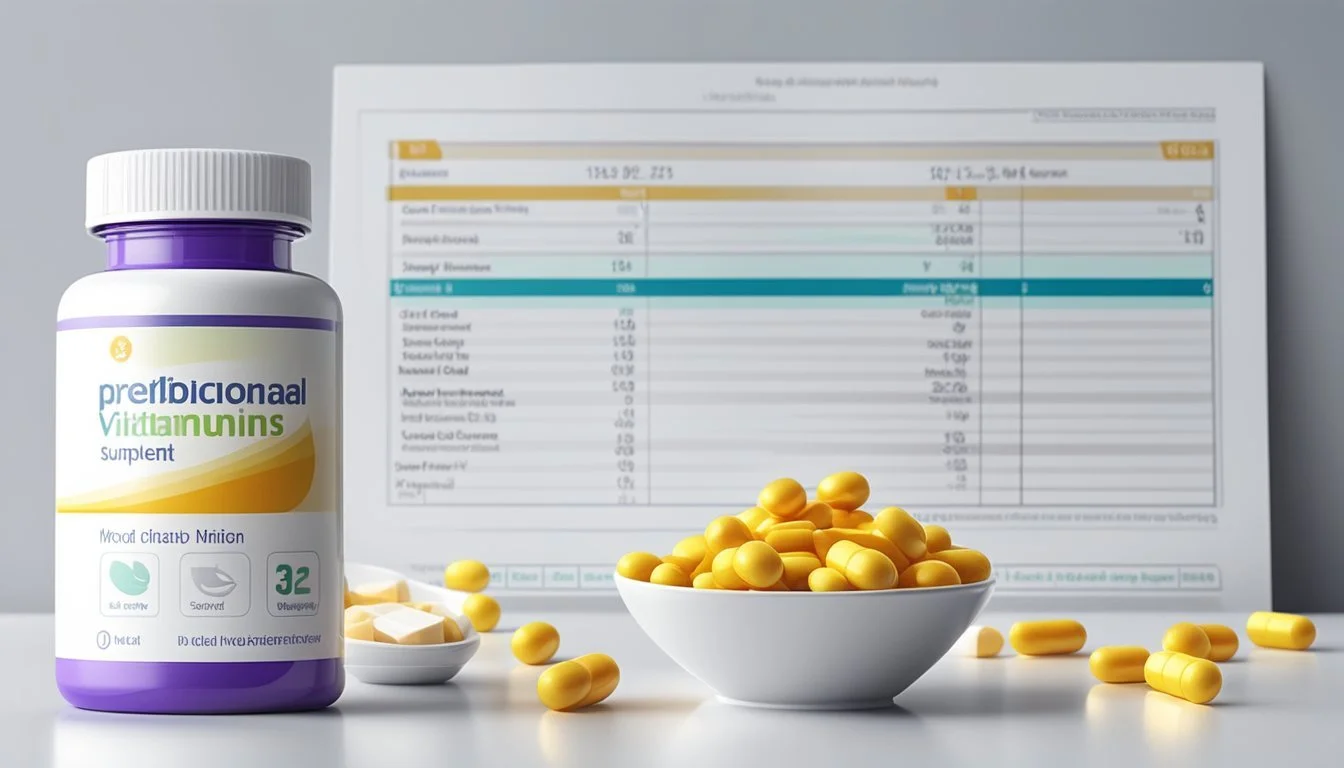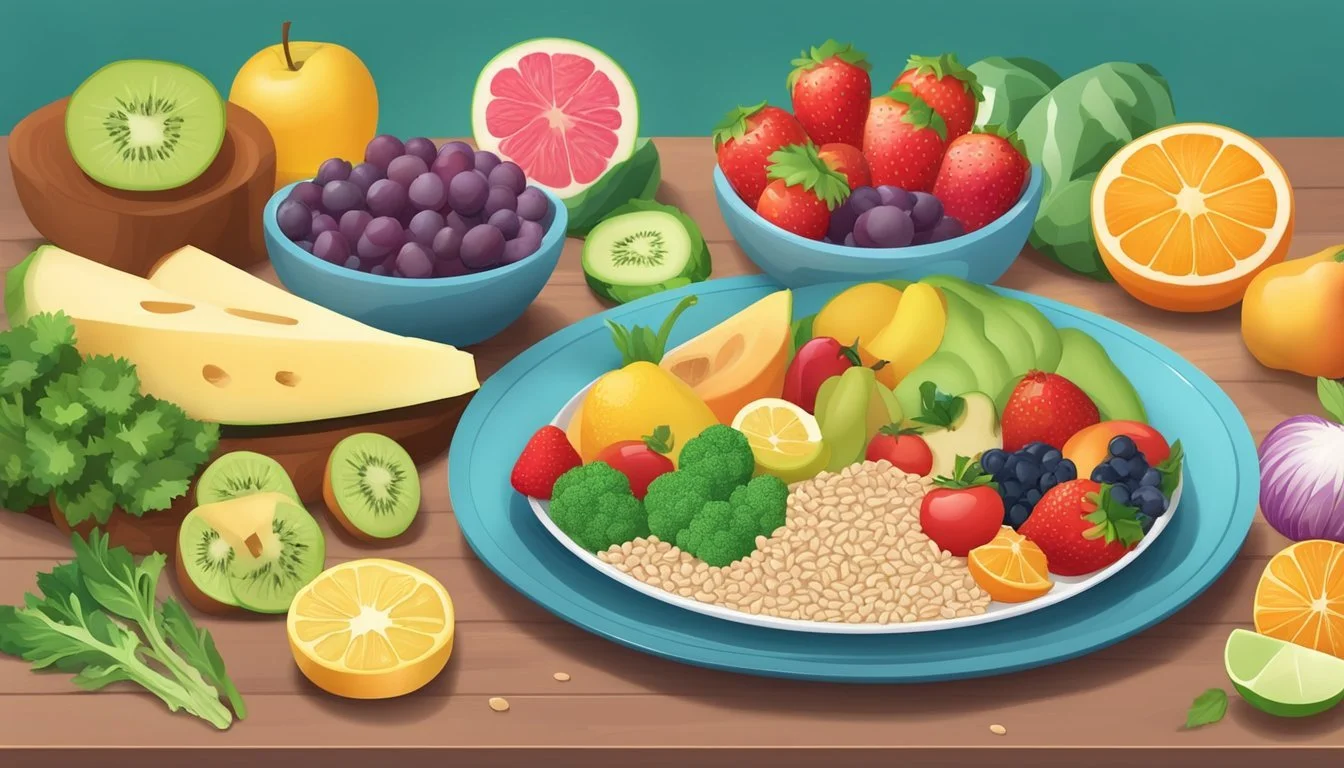Is it Safe to Maintain a Low-Fat Diet During Pregnancy?
Understanding Nutritional Needs
Maintaining a nutritious diet during pregnancy is of paramount importance for the health of both the mother and the developing baby. A low-fat diet, which typically involves reducing the intake of fats, particularly saturated fats and trans fats, can be beneficial for overall health. However, when it comes to pregnancy, it's crucial to assess whether such a dietary approach supports the increased nutritional needs required to foster healthy fetal development.
During pregnancy, a woman's body needs additional calories and essential nutrients to support the growing fetus. Some fats are necessary as they play a vital role in the development of the baby's brain and nervous system. A blanket low-fat diet could potentially restrict the intake of these critical fats and other nutrients, making it less ideal for a healthy pregnancy. Instead, the emphasis should be on the quality of fats consumed, opting for sources of good fats such as avocados, nuts, and olive oil, while keeping in view the total caloric and nutritional needs.
A healthy pregnancy diet should balance the need for increased nutrients and energy with maintaining a healthy weight. This entails consuming a variety of foods from all food groups including proteins, fruits, vegetables, whole grains, and a measured amount of healthy fats. It's essential that expectant mothers seek dietary guidance tailored to their individual health profiles and pregnancy progression, to ensure both their well-being and that of their baby.
The Importance of Fats in Pregnancy
During pregnancy, fats play crucial roles in the health and development of the fetus. They contribute to the growth of vital organs, including the brain, and are an integral part of a pregnant individual's nutrient intake.
Types of Fats and Their Roles
Unsaturated Fats:
Monounsaturated fats and polyunsaturated fats offer cardiovascular benefits and are essential in the development of a baby's brain and nervous system.
Sources include avocados, nuts, and olive oil.
The omega-3 fatty acids, particularly DHA (docosahexaenoic acid), are critical for fetal brain development and can be found in fatty fish like salmon and sardines.
Saturated Fats:
While necessary in small amounts for overall health, pregnant individuals should limit saturated fats to avoid potential health risks such as heart disease.
Common sources are red meat and full-fat dairy products.
Trans Fats:
They should be avoided as they can contribute to heart disease and other health issues.
Often found in processed foods and baked goods.
Balancing Fats with Other Nutrients
A pregnant person's diet should include a variety of nutrients. Fats must be balanced with:
Proteins: Essential for the growth of fetal tissue, including the brain.
Carbohydrates: They provide energy and are important for fetal growth and placental development.
Fiber-rich foods: Help with digestive health.
Vitamins and minerals: Such as folic acid, calcium, and iron, are vital for both maternal and fetal well-being.
A balance of these nutrients alongside fats ensures optimal health and development for the fetus and the mother. It's generally recommended that about 30% of a pregnant individual's daily calories should come from fats.
Nutritional Needs During Pregnancy
Pregnancy demands increased nutritional intake to support the growing fetus and maternal health. This section breaks down the specific requirements for a pregnant individual’s diet.
Overall Caloric and Nutritional Requirements
A healthy diet during pregnancy not only involves adequate caloric intake but also a balance of essential nutrients. Women typically need about 300 extra calories per day during the second and third trimesters. However, these calories should come from nutrient-dense sources rather than empty-calorie foods.
Recommended caloric increase: 300 calories/day during 2nd and 3rd trimester.
Sources: Balanced diet including proteins, whole grains, fruits, and vegetables.
Key Vitamins and Minerals
Iron and folic acid are two key nutrients for a healthy pregnancy.
Iron: Required for increased hemoglobin production as the blood volume expands. Pregnant women need about 22-27 mg/day.
Sources: Lean meats, beans, tofu, and fortified cereals.
Folic Acid: Essential for preventing neural tube defects. The daily requirement during pregnancy is 600 mcg.
Sources: Leafy greens, citrus fruits, and beans.
Calcium and vitamins are also paramount for fetal development and maternal health.
Calcium: Supports the development of bones and teeth. Recommended intake is 1000 mg/day.
Sources: Milk, yogurt, cheese, and fortified plant-based beverages.
Vitamins: Particularly vitamin D, vitamin C, vitamin A, and B vitamins, including B12, are crucial.
Sources: Sunny-side-up eggs for vitamin D, citrus fruits for vitamin C, carrots for vitamin A, and fortified foods for B12.
Foods to Emphasize in a Low-Fat Diet
When aiming for a low-fat diet during pregnancy, it's essential to include a variety of nutrient-rich foods that provide the energy and nutrients both the mother and the developing baby need. Choosing lean proteins, whole grains, fruits and vegetables, and low-fat dairy ensures a well-balanced intake.
Lean Proteins
Lean proteins are vital for fetal development and can be included in a low-fat diet without compromising health. Pregnant women should focus on:
Chicken: Skinless chicken breasts are a high-protein, low-fat option.
Fish: White-fleshed fish like cod and tilapia offer protein and essential nutrients like omega-3 fatty acids with minimal fat content.
Whole Grains and Fiber-Rich Foods
Whole grains and fiber-rich foods provide necessary carbohydrates for energy, along with fiber for digestive health.
Grains: Brown rice, wholemeal pasta, and quinoa are whole grains that are low in fat and high in fiber.
Legumes: Lentils and beans are excellent sources of fiber and protein while being naturally low in fat.
Fruits and Vegetables
Fruits and vegetables are cornerstones of a low-fat diet, packed with vitamins, minerals, and fiber crucial during pregnancy.
Vegetables: Leafy greens and other colorful vegetables should fill pregnant women's plates, providing fiber and essential nutrients with negligible fat.
Fruit: A variety of fruits ensures a broad intake of vitamins while keeping fat consumption low.
Low-Fat Dairy Products
Dairy products provide calcium and protein but can be high in fat. Low-fat options include:
Milk: Choosing skim or 1% milk can reduce fat intake while still providing calcium and vitamin D.
Yogurt: Low-fat or fat-free yogurts offer protein and calcium without excess fat.
Pregnant women should incorporate these food groups to cover the nutritional bases necessary for a healthy pregnancy while maintaining a low-fat diet.
Foods to Limit or Avoid During Pregnancy
During pregnancy, it is critical for women to monitor their diet carefully, particularly when it comes to foods high in fats and those posing food safety concerns as they can impact both maternal and fetal health.
High-Fat Foods
Foods rich in unhealthy fats can contribute to excessive weight gain and may raise the risk of complications such as high blood pressure (gestational hypertension). Pregnant women should limit:
Saturated fats: Found in butter, full-fat dairy, and fatty cuts of meat.
Trans fats: Often present in fried foods, pastries, and processed snacks.
Replacing these with foods containing healthier fats, like those in avocados and olive oil, supports fetal development while managing weight gain and blood pressure levels.
Food Safety Concerns
Certain foods carry increased risks of foodborne illness and should be avoided during pregnancy:
Soft cheeses: Listeria bacteria can thrive in unpasteurized soft cheeses. Opt for harder cheeses or pasteurized dairy products.
Deli meats: These can also be contaminated with Listeria. If consumption is desired, thoroughly heating till steaming hot can reduce the risk.
High-mercury fish: Large fish, such as swordfish, shark, and mackerel, contain high levels of mercury and can affect fetal brain development.
Alcohol: Completely abstaining from alcohol is advised as it poses a risk of fetal alcohol spectrum disorders.
Caffeine: Limiting caffeine to less than 200 mg per day (about an 8-ounce cup of coffee) is generally considered safe; however, further restriction may be advised by healthcare providers.
Prenatal Vitamins and Supplements
Prenatal vitamins and supplements are crucial for the health of both the expecting mother and the growing fetus. They ensure that any nutritional gaps in the mother’s diet are filled.
The Role of Prenatal Vitamins
Prenatal vitamins are specifically formulated to support a healthy pregnancy. They contain higher amounts of certain nutrients that are essential during pregnancy, such as folate and iron. Folate, also known as folic acid, is vital for preventing neural tube defects in the fetus, while iron supports the development of the placenta and fetus and helps increase the maternal blood volume. Ideally, prenatal vitamins should be started prior to conception and continued throughout the pregnancy.
Supplementing Key Nutrients
In addition to folate and iron, a prenatal vitamin often contains other important nutrients:
Calcium: Supports the development of bones and teeth in the fetus and is important for the mother's skeletal health.
Vitamin D: Works in concert with calcium and supports bone health and immune function.
Vitamin C: Helps with the absorption of iron and supports skin and gum health.
Omega-3 fatty acids: Important for the development of the fetal brain and may contribute to a healthy birth weight.
It is critical to choose a prenatal vitamin that meets a pregnant woman’s increased nutritional needs. However, they are intended to complement a balanced diet, not replace it. Pregnant women should consult with their healthcare provider to determine the right balance of prenatal vitamins and diet.
Special Considerations for Dietary Restrictions
When pregnant, it's crucial to consider the adequacy of a diet that may restrict certain foods due to ethical beliefs, health issues, or personal choices. It's essential to replace any possibly missing nutrients to support both the mother's and the baby's health.
Vegetarian and Vegan Diets
A vegetarian diet during pregnancy is generally safe and can provide most of the necessary nutrients; however, one must be vigilant about including a variety of protein sources such as legumes, beans, soy products, and nuts to ensure adequacy. Particularly for those on a vegan diet, it's vital to find alternatives for nutrients typically consumed through animal products. Pregnant individuals following these diets should regularly monitor their iron levels, vitamin B12, and omega-3 fatty acids intake, as these are commonly found in animal products.
Protein Sources: Include a variety of legumes, soy products, beans, and nuts.
Vitamin B12: Consider fortified foods or supplements as this vitamin is mainly found in animal products.
Omega-3 Fatty Acids: Flaxseed or algae-based supplements can be beneficial.
Food Allergies and Intolerances
For those managing food allergies and intolerances during pregnancy, it's necessary to substitute eliminated foods with alternatives that offer similar nutritional value. If dairy products are not an option due to lactose intolerance or a milk allergy, one should turn to calcium-fortified non-dairy alternatives or other calcium-rich foods to maintain sufficient calcium intake.
Calcium Sources: Opt for fortified plant milks, tofu set with calcium, or leafy greens.
Whole Foods: Focus on a variety of whole foods that are safe to consume to ensure a comprehensive nutrient profile.
It is advisable for individuals with dietary restrictions to consult with a healthcare provider or a dietitian to tailor their diet for a balance of nutrients that will support a healthy pregnancy.
Practical Tips for a Balanced Low-Fat Diet
When adopting a low-fat diet during pregnancy, it’s crucial to ensure the diet is balanced and provides essential nutrients. Meal planning and selection of healthy snacks are key components.
Meal Planning Strategies
One should focus on incorporating a variety of nutrient-rich foods within their meals to maintain a healthy balance. They can start by:
Including lean proteins: Opt for chicken, tofu, and fish like tuna.
Selecting whole grains: Choose brown rice, wholemeal pasta, and quinoa.
Adding fruits and vegetables: Berries, peas, and leafy greens are excellent options.
A balanced meal plan could be structured as follows:
Meal Time Food Group Example Breakfast Whole Grains Oatmeal topped with berries Lunch Lean Protein Grilled chicken salad Dinner Whole Grains + Veg Brown rice with steamed peas Snacks Fruits Apple slices
Healthy Snacking Ideas
Between meals, it's beneficial to have snacks that are both satisfying and nutritious but low in fat. They should look for snacks that:
Are high in fiber: This includes options like fruits and whole grain cereals.
Include protein: Consider low-fat dairy products like yogurt or milk.
Healthy snacking can consist of:
Egg whites: Hard-boiled or in an omelet with vegetables.
Grains: Rice cakes or whole grain crackers.
Legumes: Like peas, can be enjoyed in the form of dips or salads.
By focusing on fruits, whole grains, and lean proteins, one can maintain a low-fat diet that supports both the health of the expectant mother and the developing baby.
Potential Risks of a Low-Fat Diet
A low-fat diet during pregnancy can be associated with certain risks that may affect both mother and fetus. Nutritional deficiencies and their implications on fetal development are primary concerns that need careful consideration.
Nutritional Deficiencies
A pregnant woman on a low-fat diet may be at risk for nutritional deficiencies. Fats play a crucial role in the absorption of fat-soluble vitamins, such as Vitamin D, Vitamin E, Vitamin A, and Vitamin K. These nutrients are essential for various functions including:
Vitamin D: Vital for calcium absorption, important for building strong bones for both the mother and developing fetus.
Vitamin E: Acts as an antioxidant and supports immune function.
Vitamin A: Necessary for healthy vision, immune function, and cell growth.
Vitamin K: Important for blood clotting and bone metabolism.
Deficient intake of these vitamins can result in adverse health outcomes, including an increased risk of miscarriage and inadequate maternal and fetal health.
Impact on Fetal Development
Fat is not only a crucial energy source but also essential for proper fetal growth and brain development. Essential fatty acids, like omega-3 and omega-6, are crucial components of cell membranes and are needed for the development of the fetal neural tube, which later develops into the brain and spinal cord. A deficiency in these can lead to:
Impaired brain development: Omega-3 fatty acids, particularly DHA, are essential for brain and retinal development.
Potential for neural tube defects: Fats are important for the production of myelin, the protective sheath around the nerve fibers, and low intake may increase the risk of such defects.
It's necessary for healthcare providers to discuss these risks with expectant mothers to ensure a balanced approach to fat consumption during pregnancy.
Monitoring Health and Diet During Pregnancy
Maintaining a balanced diet and monitoring health are crucial for the well-being of both the mother and the developing fetus during pregnancy. Adherence to weight gain guidelines and nutrient intake is essential to support the various stages of fetal development.
Regular Check-ups With Healthcare Providers
Regular prenatal check-ups allow healthcare providers to assess a mother’s health and the progress of fetal growth. During the first trimester, initial health screenings take place, laying the groundwork for dietary adjustments. As the pregnancy progresses into the second and third trimesters, these check-ups become more frequent. Healthcare providers track vital signs, screen for gestational diabetes, and address nutritional needs for fetal development. It is during these visits that they can guide women on the specific adjustments to maintain sufficient nutrient intake while managing weight gain.
Monitoring Weight Gain and Nutrient Intake
Weight gain during pregnancy should align with the guidelines provided by healthcare institutions, which suggest different ideal weight gain ranges depending on the mother's pre-pregnancy body mass index (BMI). Health professionals emphasize that weight gain should be steady and gradual. For example, the Institute of Medicine recommends:
For women with a normal BMI: a gain of 25-35 pounds.
Overweight women: 15-25 pounds.
Obese women: 11-20 pounds.
To achieve these weight targets, a woman's diet must be rich in nutrients that support fetal development without promoting excessive weight gain. This includes a balanced intake of:
Proteins
Carbohydrates
Healthy fats
Vitamins
Minerals
Folic acid intake is particularly important and is often highlighted by healthcare providers due to its role in preventing neural tube defects. During the second and third trimesters, calorie intake recommendations generally increase by approximately 300-450 calories a day to support fetal growth. However, it's essential that these extra calories come from nutrient-dense foods rather than foods high in saturated fats and sugars.







